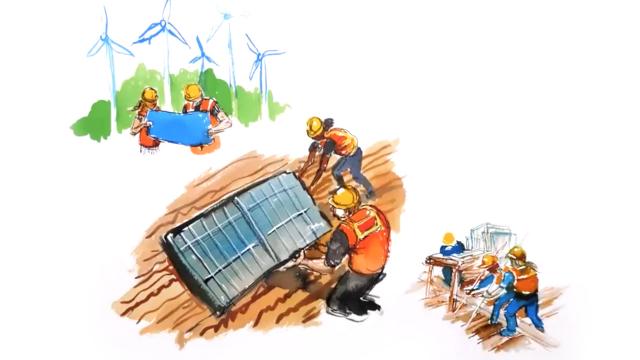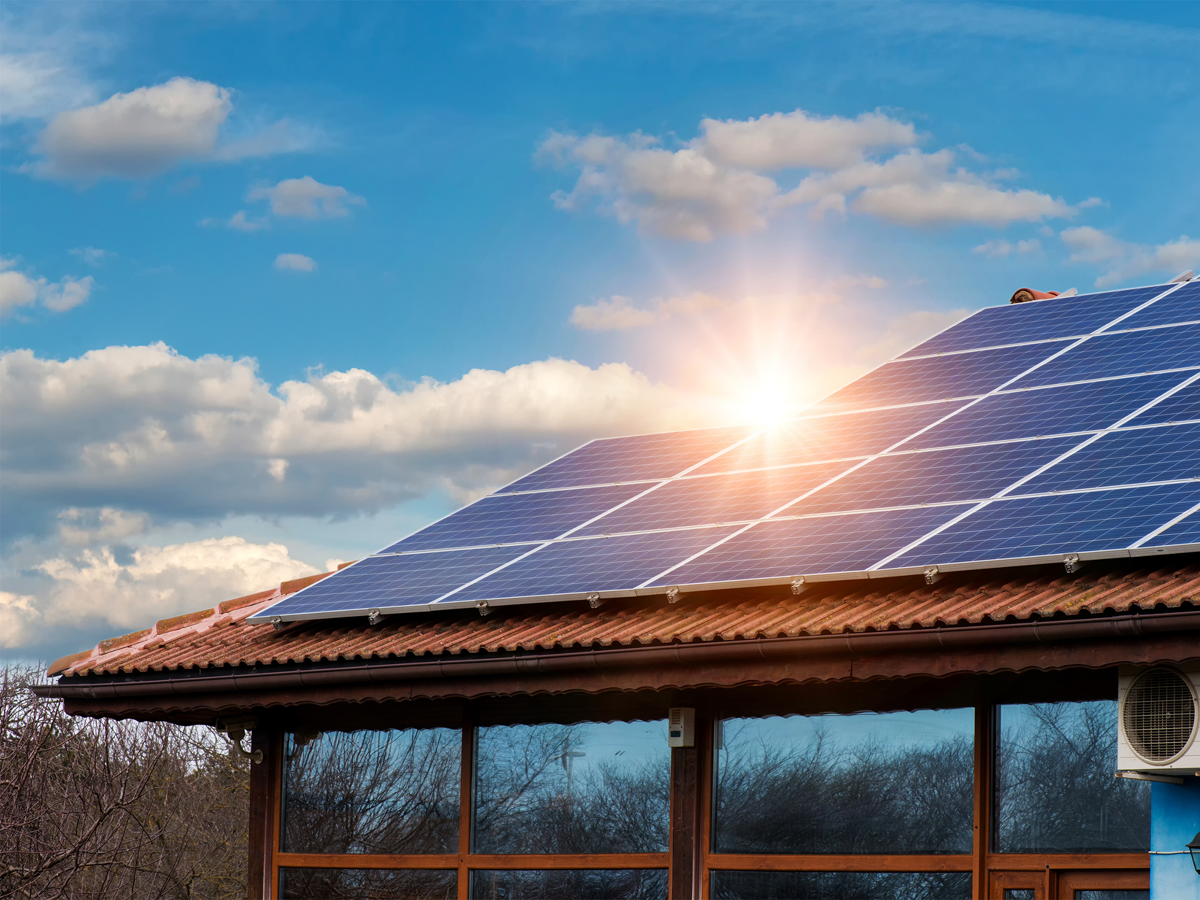
Something becomes clear after traveling overland across Europe. From northern Norway to southern Spain, you see numerous unused and derelict buildings, particularly in small towns and rural areas. Hitching a lift earlier this summer to Poland's first climate camp, located in the country's center, I was struck by the scene of abandoned buildings that included petrol stations, factories, farm buildings and so on.
On one hand, I saw ruin. On the other, all the empty buildings provided opportunities for infrastructure and space to forge a renewable energy future and challenge the far-right populism that has seized Poland and much of the continent.
The people left behind
Unused rural buildings speak to a global trend of urbanisation. Capitalism pulls and pushes people, and their jobs, into big cities. The empty buildings used to offer work and services, and turned these into places to live. Now the buildings' shells speak of the absence of work that created these communities, and to the people capitalism has left behind.
Demographics show these burnt out regions are the far-right populists' and demagogues' heartland. From President Trump to Poland's Law and Justice Party, and from Finland's Finns Party to France's National Front, rural and small towns for the popular base. This is not to say that no socially progressives live there, nor that big cities don't have their share of far right supporters. But it's the small town folk – the ones the system left behind – who tend more often to turn to the hard right.
In Poland, the populist Law and Justice Party appears set to win national elections, scheduled for late autumn. Recent municipal and European elections show it is strongest in rural areas and small towns, whereas big cities offer the least support. This fits a global trend of far-right parties offering policies and messages that attract the people left behind, in part by scapegoating immigrants, women and other oppressed groups. In Poland, this also increasingly means anti-LGBT. The formula is often the same: a sense of loss, used with fear, creates anger.
Likewise, right wing populists globally harken back to the past, or at least an imagined, nationalist past. We can see this in slogans. For Trump, it's “Make America Great Again.” The Brexit narrative was “Take back control.” In France the National Front runs under the slogan “In the name of the people.”
The demagogues' grand lies focus on the people left behind, while they offer – in rhetoric at least – a narrative that appears to listen to these people, while presenting them with an anti-establishment party to vote for. Even if the far-right populists are more likely to further toxify the swamp rather than drain it, perhaps their biggest trick is to mobilise angry people and convince them to vote against their own economic interests.
So how do we counter this narrative, particularly for those who feel most disenfranchised? One solution that not many people mention is the renewables revolution.
How could renewable energy challenge fascism?
Through Green New Deal thinking we could imagine re-using these empty buildings. They could be turned into small green cottage industries. Old factories would be transformed into community solar workshops. Abandoned buildings on hills would be converted into community wind farms. Other buildings would become centers designed to help grow green cooperatives. These buildings could all be used for something different. The purpose would be to create things that are ecologically and socially sound in order to replenish communities, and this is not just blue-sky thinking.
Scotland's remote island population has generally fallen over the last two centuries. People often moved to Scotland's population belt, between Glasgow and Edinburgh, or further afield. For more than a decade this trend has been reversed on islands where community power and cooperative energy is empowering the community in every sense. By creating their own electricity through co-owned windfarms, communities are earning revenue selling energy while becoming self-sufficient and creating a viable economic future.
Whether it's a local library bus, a new health center or grants to support youth education, these communities are rebuilding thanks to renewable energy's dividends. A good marker of how healthy these islands have become is their rising school population. Previously schools were shutting down. But since the rural green revolution, pupil numbers are on the rise. Renewables offer small places a future.
Supporting rural renewables can be done in many ways. Scotland's islands raised funding through communities that bought islands and made other community investments. Denmark also has community wind farms that it supports through three laws: 1) every wind farm has a right to connect and sell energy to the grid; 2) energy suppliers are obliged to buy the clean power; and 3) a good price was guaranteed.
Considering the Green New Deal for rural areas, these three laws provide a good starting point. But how can we transfer the empty buildings into community ownership? Both municipal councils and national governments could facilitate this transfer. Here are five examples, which are by no means exhaustive:
1. In Uruguay, land banks managed by a state-run administration registers unused properties and redistributes them to housing cooperatives.
2. In many countries local councils own buildings, even unused buildings, which can be leased to local green/renewables cooperatives.
3. In Barcelona, the council has fined speculators for keeping properties empty. Equally, councils could create higher business taxes on empty properties, and request short-term leases on empty properties, or use the revenue to buy other properties.
4. In Berlin, a referendum in the making could allow the city to buy all properties owned by five big landlords. The idea is to turn these into social housing to tackle quickly rising rents. The plan relies on the German constitution, which already enables authorities to buy properties for the social good – a law that until now has been used for road building.
5. National governments could implement legislation to make it easier for local councils to push any of these measures. Equally, it could be a priority of Green Investment Funds, backed by national bonds, to fund rural Green New Deal energy and other green cooperatives.
Blue sky thinking for everywhere
To promote the Green New Deal, New York Congresswoman Alexandria Ocasio-Cortez said: “The first big step is closing our eyes and imagining it. We can be whatever we have the courage to see.”
It is essential that communities left behind are included in the vision for a green future beyond far-right populism – and shown the hope that future provides to everyone.













